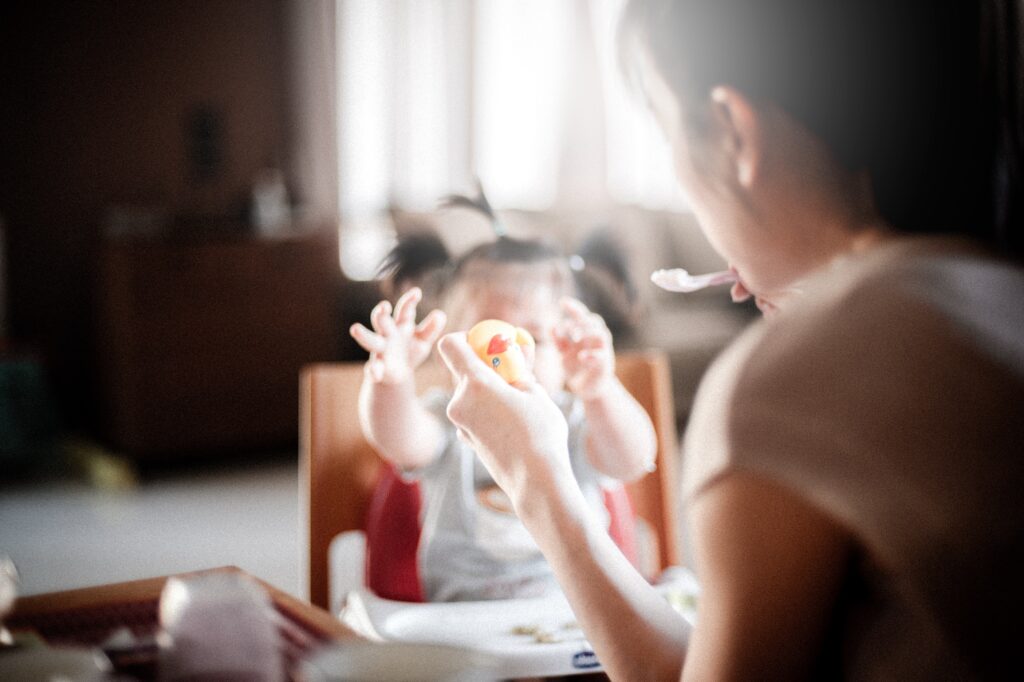Every now and then we see or hear some news and articles about adults and children being overweight or obese. It becomes more and more problematic and overweight among children is growing every year. WHY is that so?
This short article explores the potential problems of children’s constant snacking and gives you tips on how to stop it.

My kid is 19 months old at the moment and I am not that worried her being overweight. What I always worry about is what to cook or give her as snacks. We have been practising baby led weaning since she was 7 months old and I am happy about that choice because she is eating everything that we are.
I have heard (and also see) how many moms are giving their kids often something to eat or drink. Usually sweet drinks. Think of all of that sugar and what it does to a child. And then they wonder why their kid is not eating anything from the actual meal. I know we always worry that our kids might be hungry, specially when they start to whine or behave moody. What comes to our mind then? We try to calm them down and offering drink and food, but what does is do to the kid? We try to comfort, distract or make them happy again. But little is said about this non-stop child snacking that can have a big impact on child’s perception of meals. Not to mention weight gain or its negative impact on a child’s health.
I am so to say “Führer mother” (Führer means leader), like my BF likes to call me, who has been very precise about eating and sleeping times since the beginning. Many of my friends who have come over to our place have wondered about my big schedule on the wall, and asking if I really follow it accurately. The answer is YES because I like when I have things under control (at least I think I have).
I understand that snacks can be used to motivate a child who doesn’t eat that well. Also in situations like flying or being sick. And, of course, there are situations where you can’t pay attention to a child and snack is the only helper. But snacking on a regular basis to change a child’s mood, to comfort, distract, or engage in activity has negative effects. WHY?
- Constant snacking will spoil the child’s appetite and he/she will most likely not eat properly at the main meal.
- Frequent snacking can damage child’s teeth because the acidic environment of the mouth cannot return to normal if the child is constantly eating something.
- In a situation where a child should deal with his/her feelings but is being offered food instead, gives a signal, food = consolation.
- By providing snacks during moody times, we deprive children of the opportunity to feel boredom, resentment, frustration, and other feelings that they might feel. But all feelings are important to feel and learn!
- Frequent eating suppresses the imagination of children to find a solution to their boredom.
- Snacking does not teach a child any patience. They wouldn’t learn that they would have to wait for the food to be ready and all family eats it together.
Of course, I have found myself in these situations as well. For example while cooking dinner, I have offered snacks for my baby girl to eat because she doesn’t stop whining and I know that she didn’t eat that good during the lunch time. It works to calm the kid down but I know that more she gets the less she will eat during the meal. So I try to get her attention with something else and try to involve her with my cooking, explaining her at the same time what we are exactly doing and as soon as the dinner is ready and papa is at home, we can eat all together.
Here are some tips that I have followed and could help your child to stop snacking too often:

- Keep track of the meals and snacks you are giving.
- Make specific meals schedule and try to follow it as much as possible. Our schedule: breakfast, lunch, afternoon snack and dinner. Like this the kid will soon understand and know when to expect another meal time.
- If your child doesn’t eat during the meal after several attempts of offering, stop his/her meal until the next meal. Explain that it’s ok not to eat if he/she doesn’t want. That he/she can eat the during next meal when feeling hungry.
- Best is to offer WATER to drink during the main meal. Otherwise the kid can just drink his/her tummy full and will not eat.
- Make your meal a nice routine by having your whole family around the table. If you have planned desserts, then don’t bring them on the table unless everyone has finished their main meal. Always explain that to your kid!
- If the kid doesn’t want to eat what is on his/her plate. Don’t go running for a yoghurt or something like this from the fridge. Finish your plate and if your kid still hasn’t eaten anything then explain that he won’t get anything else.
- I usually don’t offer desserts during lunch times. Also I try to keep it that way that sweet things offered are fruits/berries etc.
I know that raising a kid is a hard job and we all want the best for him/her. That’s one of the reason why I wanted to give some tips from our family for you to try or at least to think about. Let’s keep our future generation healthy!